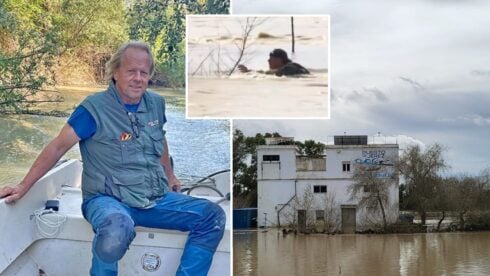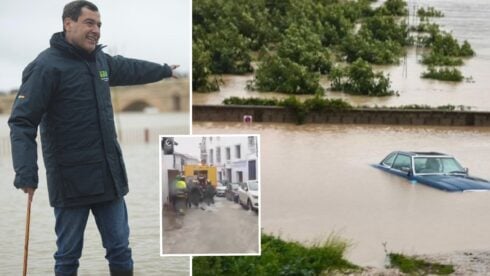A SLEEPY town in the southern tip of Spain wants to elevate the long held tradition of having a neighbourly chat on one’s doorstep into a UNESCO recognised cultural activity that deserves preservation.
In Algar, a pueblo blanco with 1,428 residents just inland from the coast in Cadiz province, Andalucia, pulling up a chair outside your front door to shoot the breeze with your neighbours at the end of a long hot summer day is as vital to daily life as collecting a barra in the morning and taking a siesta in the afternoon.
For centuries neighbours in villages, towns and even cities across Spain have shared news and views this way but this simple face-to-face socialising is under threat as the younger generation increasingly turn to screens and online social networks to keep in touch.

Jose Carlos Sanchez Barea, the Popular Party mayor of Algar saw an opportunity to encourage the practice – known in Spanish as ‘charla al fresco’ – that he believes is essential to community spirit and general wellbeing.
“In Algar we don’t want our customs, our tradition, our way of relating to our neighbours to be lost,” he explained on the town hall facebook page.
“So we are going to begin the process to have ‘charla al fresco’ awarded World Heritage status,” he announced, alongside a video showing the neighbours evening ritual.

He encouraged residents to keep the tradition going during the application process insisting that the activity brought even more benefits during Covid times.
After and 18 month period which left many people, especially the elderly, feeling socially isolated, this is a way to connect daily with the outside world and in a way that limits the possibilities of infection by allowing social distancing in an outdoor setting.

Spain already has many of its traditions recognised with Unesco’s Intangible Cultural Heritage status from the well-known Flamenco and human castle building in Catalonia to lesser known traditions such as lime-making in Moron de la Frontera and a drum-playing ritual known as Tamboradas.
Even the Mediterranean diet has been awarded the special status although Spain’s famous dish paella has yet to achieve it.
READ MORE:
- Madrid’s Retiro Park and Paseo del Prado awarded UNESCO World Heritage Status
- Traditional paella from the Valencia area of Spain could become a UNESCO asset
- Alicante on Spain’s Costa Blanca to apply for UNESCO World Heritage Site status
Click here to read more News from The Olive Press.








